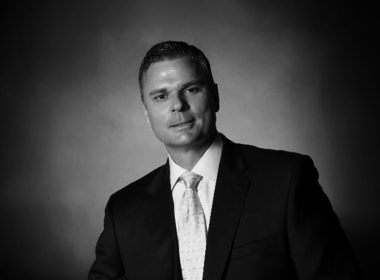Family crisis often reveals hidden trauma that children carry silently. When parents face incarceration, their children navigate complex emotional terrain that traditional support systems frequently miss. Understanding these psychological impacts requires expertise in both family dynamics and forensic psychology. Dr. Celeste Simmons brings this specialized knowledge to families facing some of their most challenging moments through her practice, Family and Forensic Solutions.
Bringing Psychological Insight to Family Law
Dr. Celeste has spent over 15 years working at the intersection of psychology and law, supporting families while assessing risk and advocating for children caught in complex family situations. Her work spans state and federal courts as an expert witness, alongside her role as a co-parenting consultant. “My mission is to bring clarity, compassion, and clinical precision to families in crisis,” she explains. This dual focus on legal expertise and psychological support shapes her unique approach to helping families navigate difficult transitions.
Through her practice, she addresses issues that often get pushed aside or misunderstood by traditional support systems. Her specialization in forensic psychology allows her to see patterns and trauma responses that others might miss, particularly when children are dealing with parental incarceration.
Think About Grief Without Closure
One of the most challenging aspects of parental incarceration involves a type of loss that defies typical grieving processes. Children face something that Dr. Celeste describes as particularly difficult to navigate. “Children of incarcerated parents often grieve someone who’s still alive,” she notes. This creates a psychological complexity that traditional grief counseling doesn’t address, leaving children without clear pathways to process their emotions.
The absence of closure or community support makes this grieving process even more challenging. “Unlike death, incarceration lacks closure or community support in some cases, making it harder for these children to process this loss,” Dr. Celeste explains. This unresolved grief often manifests as chronic stress, mistrust, and disrupted attachment patterns that can affect children for years. The impact on relationships becomes particularly evident as children grow. “I’ve worked with kids as young as four who are apprehensive about forming close relationships because in their world, love and loss can be simultaneous,” she shares. This early learned association between love and potential loss creates barriers to healthy relationship development.
When Trauma Gets Misread as Defiance
School environments often become challenging spaces for children dealing with parental incarceration. Educational professionals, without understanding the underlying trauma, frequently misinterpret behavioral responses. Dr. Celeste points out that “trauma might be misread as defiance” in these settings, leading to responses that compound rather than address the real issues. The behavioral manifestations of trauma can look very different from what educators expect. “What schools often label as bad behavior—shutting down, acting out, or being defiant—is frequently a response to the traumatic loss they’ve experienced,” she explains. These children may be processing confusion, shame, or instability that shows up as disruptive behavior in classroom settings.
Research supports what Dr. Celeste observes in her practice. “Children of incarcerated parents are two to three times more likely to face academic struggles, and they’re also more likely to be suspended, expelled, or even drop out entirely,” she notes. Without proper understanding and intervention, schools inadvertently contribute to cycles that push these children further away from supportive environments.
Building Resilience Through Support
A common misconception exists about children and trauma. “Sometimes we expect that people just have resilience automatically,” she says. The assumption that children should naturally bounce back because they’re young overlooks the reality of how resilience actually develops.
“Resilience isn’t something that children are born with, but it may often be expected. It’s built through difficulties and support, from stable nurturing relationships and experiences over time,” she explains. Children cannot be expected to handle their parent’s incarceration without assistance. However, with proper support, outcomes can change dramatically. “Just one emotionally available caregiver or consistent adult can dramatically shift a child’s long-term outcomes.” This understanding led Dr. Celeste to create the Resilient Coparenting Through Incarceration program. Caregivers need tools as well, as they’re often dealing with their own trauma while trying to help a child process something incomprehensible.
All of Dr. Celeste’s work centers on one fundamental truth that many overlook. “Parental incarceration doesn’t have to shape a child’s entire story. The outcomes can depend on how the adults around them respond,” she says. The child’s future isn’t determined by what happened to their parent, but rather by what happens next. The solution isn’t complicated, just challenging to implement consistently. “Children don’t need to be perfect. They need presence. They need compassion. They need someone who sees them as whole, regardless of their family situation.” Her advice for anyone supporting these children cuts through all the complexity: “What matters most isn’t having all the answers. It’s about showing up with honesty, consistency, and care. That’s how resilience is built.”
Follow Dr. Celeste Simmons on LinkedIn for insights on childhood trauma, resilience, and family support.











